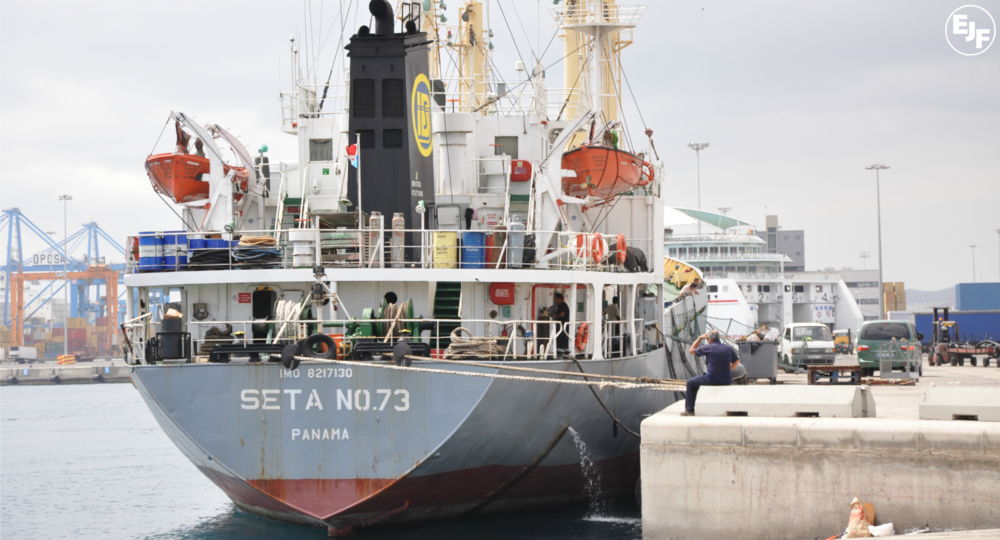
EJF responds to the first EU warning to countries involved in pirate fishing
The European Commission has issued a warning to eight non-EU countries that they “risk being identified as countries it [the Commission] considers non-cooperative in the fight against illegal, unreported and unregulated (IUU) fishing.” EJF applauds the Commission’s decision to take a step towards restricting imports of fish from countries that do not cooperate in fighting IUU fishing, but highlights that much more action is needed to prevent IUU fish from entering the EU market.
The countries that risk being blacklisted are Belize, Cambodia, Fiji, Guinea, Sri Lanka, Togo, Vanuatu and Panama. More than half of these countries are Flags of Convenience (FoC) that sell their flag to foreign fishing operators but lack the will or capacity to regulate their activities. EJF’s research has shown that a significant number of vessels flying FoC are owned by European companies.
EJF’s investigations of the activities of Panama-flagged vessels led to the largest anti-IUU fishing operation since the EU’s illegal fishing laws came into force in 2010; in this case, a Panama-flagged refrigerated cargo vessel, Seta No. 73, and a number of vessels fishing under the South Korean flag were found to have operated illegally in the coastal waters of a number of West African countries.
The European Commission does not intend to impose any immediate sanctions to the eight countries. Instead, Maria Damanaki, Commissioner for Maritime Affairs and Fisheries, said the announcement was “a yellow card”, giving the named countries an opportunity to improve their performance. She also said that the warning was a signal to the world that the EU “will not tolerate IUU fishing”.
Yet after almost three years since the EU Regulation to Prevent, Deter and Eliminate Illegal, Unreported and Unregulated Fishing (No. 1005/2008) came into force, no countries or fishing vessels known to be fishing illegally have had their seafood exports to the EU restricted.
“This ‘yellow card’ does not go far enough, especially when it’s shown to only some of the players behaving badly.
If we are serious about putting an end to pirate fishing, we need the European Commission’s determination to enforce its own laws and keep its own promises.
As the world’s largest fish importer, the EU has a responsibility to ensure that the fish on European plates has been caught legally. EJF is calling on the EU to blacklist vessels identified as fishing illegally, ban imports from countries that don’t control their fishing fleets, and regulate the activities of EU nationals that exploit flying the Flags of Convenience.” Steve Trent, EJF’s Executive Director
SIGN UP FOR OUR EMAILS AND STAY UP TO DATE WITH EJF